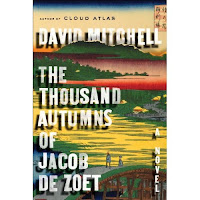 Antonia Fraser’s memoir of her life with Harold Pinter could not have been more delightful had it actually been delivered to my door as ice cream, toffee and chocolate sauce. Sweet, but not saccarine, sharp but not severe, it’s simply an account of two people who met, fell in love, and then spent the rest of their lives together. Fraser, well known for her biographies of Mary, Queen of Scots, all of Henry’s wives, among other writings, met Pinter, the infamous playwright, while both were ensconced in other long-term marriage (each had been with their spouses for eighteen years). Neither expected to leave their marraige. Neither expected to fall so deliciously in love with one another — but that’s exactly what happened.
Antonia Fraser’s memoir of her life with Harold Pinter could not have been more delightful had it actually been delivered to my door as ice cream, toffee and chocolate sauce. Sweet, but not saccarine, sharp but not severe, it’s simply an account of two people who met, fell in love, and then spent the rest of their lives together. Fraser, well known for her biographies of Mary, Queen of Scots, all of Henry’s wives, among other writings, met Pinter, the infamous playwright, while both were ensconced in other long-term marriage (each had been with their spouses for eighteen years). Neither expected to leave their marraige. Neither expected to fall so deliciously in love with one another — but that’s exactly what happened.
Fraser’s elegy to her late husband opens with the explanation of the book’s title — Fraser, having met Pinter in passing, was about to leave a party, when she stepped over to say goodbye, he said, “Must you go?” She didn’t, and they spent the rest of the night and a good part of the next morning talking. Thus setting the tone for not only their relationship but for how the two would build an exceptionally happy marriage. Taken almost exclusively from her Diary writings, the book’s construction remains remarkably linear, a story told from beginning, to the middle, and to the end, which might feel tedious in the hands of a lesser writer. Even Fraser’s everyday notations are fascinatingly witty, endearing and utterly full of heart. The entire book has a sweetness to it but, at the same time, it’s also an incredible glimpse into the private lives of two very famous writers. How they work seems almost secondary to the everyday goings on — the lunches, the friendships, the travelling, their children — and the creative process is never discussed in any depth, simply mentioned in passing as a part of the rest of their lives.
Diary entries seem so private. And I’m sure a solid amount of sculpting and editing has gone into shaping them so that they make sense in a more public way. This isn’t a traditional memoir, and even though it’s so very different stylistically, it’s just as moving as Joan Didion’s The Year of Magical Thinking. Yet where Didion almost collapses under the weight of her loss, Fraser seems to be more intent upon writing a celebration of their lives. I’m certain that Fraser deeply mourned the loss of the love of her life but she’s got a wonderful attitude towards life — always enjoying the experience, always looking for the next bit of history to capture her attention, always celebrating her immensely happy marriage — that’s infectious. It’s a great book to be reading when your own life isn’t necessarily going in the up and up, especially health-wise, especially to see that Pinter was still acting, still writing (but not necessarily new plays; more poems and short pieces), and still incredibly active politically even when he was suffering from cancer, yet another disease, and then the painful side effects of all the medication.
I’m consistently amazed at the amount of true work that they both managed to accomplish, especially in the middle years of their lives, what with seven kids (Fraser had six; Pinter, one) to raise and plenty of drama (Pinter’s ex-wife had a hard time accepting that he had left and refused on numerous occasions to grant him a divorce). In the truest sense of the word, for me, this was a book that proves that love triumphs, that a good attitude can battle any adversity, that it’s worth standing up for your politics, for your love, for your life, and that visiting dead writers’s graves always makes for an excellent photo opp. I had a library copy, which I had to return, or else I would have quoted from the book directly — but what I would have loved, as well, is a bibliography of everything that Fraser and/or Pinter read over the years, an addendum to their writing lives — what a fascinating study that would have made as well. Regardless, it’s an excellent read, and one that I’m so happy I found.
Also, Must You Go? REALLY makes you want to keep a daily diary, but knowing my life isn’t remotely as exciting as the Pinter/Fraser household, perhaps I’ll refrain and just steady on here as I’ve been doing the last few years.








